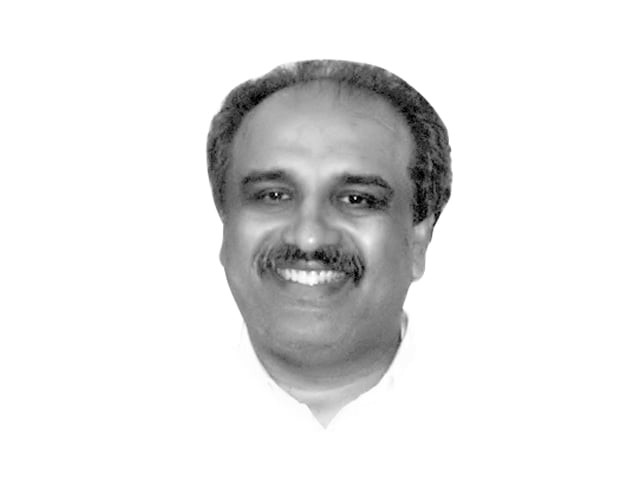Pakistan and the Berlin of 1919
There is an urgent need to act, otherwise Pakistan’s fate could be similar to that of the Weimar Republic.

Remembering the Berlin uprising that led to Luxemburg and Liebknecht’s death, and revisiting Rathenau’s murder (every day I pass by the memorial commemorating the exact spot where he was killed) as bookends for the violence that encompassed Germany in the early twentieth century, made me think more seriously about Salmaan Taseer’s assassination by a member of his own security detail. It reminded me of how the Pakistan of today (at the risk of historical oversimplification) is somewhat like Weimar Germany, a volatile society where various social and political forces are vying for power. With a weak government engulfed in problems of suicide bombings and a ‘reluctant’ participant in the US-led global ‘war on terror’ in the northwest of the country, Pakistan is facing high unemployment rates, an acute energy crisis, rampant inflation and a nationalist insurgency in Balochistan. The government, itself tainted by scandals of corruption and inept governance, is, of course, always mindful of an army that continues to wait patiently to see it falter.
There is an urgent need to act, otherwise Pakistan’s fate could be similar to that of the Weimar Republic, where infighting and mutual suspicion among the democratic forces led to the rise and popular acceptance of the National Socialists. In Pakistan today, the religious right, although not electorally strong, controls the street and has the power to silence its opponents through legal and illegal means. This occurs while a popularly-elected government (in a parliament consisting of mainly non-religious parties) continues to accede to the wishes of those who speak the loudest, and who can coerce it through political manipulation of parliamentary procedure or create social turmoil through extra-parliamentary means. If this ‘legal-civil war’ and uncertainty continues, there can be at least two future scenarios. One is the state of siege in which the military suspends all civil law in times of perceived threats to the nation, or more insidiously, the suspension of individual liberties and constitutional guarantees by civilian decree; the other is the possibility of a populist and authoritarian regime. Both tendencies can potentially come together in terms of Pakistani politics.
It is to safeguard against such eventualities that Taseer’s untimely death should be a wakeup call. Pakistan’s history is littered with violent deaths of its citizens and political figures, but the frequency of such acts has increased in recent years. The political task is to deepen the democratic impulse that is present in its populace, represented at times in the multiplicity of its media outlets, the maturity of its civil society groups, the dynamism of its grass-roots organisations and the activism of political actors of all persuasions. Perhaps all who desire to continue this nascent experiment in democracy, those in and outside the corridors of power, need to come to an agreement that differences of opinion should not be resolved by subjecting the ‘other’ to violent acts: whether the killing of a liberal politician by a religiously motivated actor (as in the case of Salmaan Taseer); or militarily annihilating non-liberal subjects from a position of power and perceived neutrality (as in the case of drone attacks in Pakistan’s northwest); or, for that matter, the armed response to nationalist sentiments in Balochistan.
Pakistan is again at a difficult crossroads. Yet, like many such crises, this moment could be seized to rethink a range of options. While Weimar Germany is not the same as early twenty-first century Pakistan, there are some similarities: the recent spate of political murders in the country, including Taseer’s death, shows how, in both societies, there was/is an unwillingness to live with difference and disagreements. Similar to the emerging democratic experiment in Weimar Germany then, and in Pakistan now, the government needs to sincerely re-prioritise vital social needs in education, health, rural and urban infrastructure and job creation. Yet, what remains as important is to create a political space where differences can be resolved without resorting to violence and the annihilation of the adversary; a politics that is concerned with living with disagreements as much as it is about creating consensus.
As a trained cultural anthropologist, I find inspiration in this formulation when I see people, despite the presence of endemic personal, social and political violence in most non-elite urban neighbourhoods of the country, continue to coexist, share resources and work together. Perhaps our collective inspiration could also come from these everyday lived experiences in the alleys and streets of Pakistan’s urban and rural back spaces, where a clearly divided country, due to the intimacy of living in similar structural and social circumstances, may also have found moments of kindness, tacit agreements, civic accord, shared rules/values and reciprocal obligations. I am not calling for blind optimism, yet such a gesture may enable us to encounter a political space that can serve as a template to build a future where a diverse population considers the challenges, pitfalls and compromises of coexistence. Utopic as it may sound, a visionary leadership is direly needed to attain this goal and to avoid the fate of that other experiment in democracy, the Weimar Republic.
We took our two young sons to join the thousands who had gathered at Luxemburg and Liebknecht’s grave to pay them homage. While placing our red carnations, I said a silent prayer for a more peaceful future for the boys to inherit.
Published in The Express Tribune, January 15th, 2011.















COMMENTS
Comments are moderated and generally will be posted if they are on-topic and not abusive.
For more information, please see our Comments FAQ